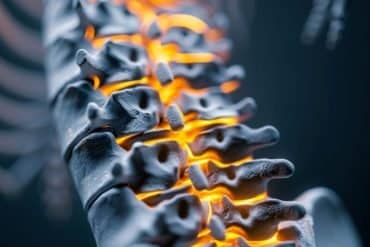Postmortem brain studies suggest nerve growth factor safely triggered functional cell growth.
Degenerating neurons in patients with Alzheimer’s disease (AD) measurably responded to an experimental gene therapy in which nerve growth factor (NGF) was injected into their brains, report researchers at University of California, San Diego School of Medicine in the current issue of JAMA Neurology.
The affected neurons displayed heightened growth, axonal sprouting and activation of functional markers, said lead author Mark H. Tuszynski, MD, PhD, professor in the Department of Neurosciences, director of the UC San Diego Translational Neuroscience Institute and a neurologist at VA Medical Center, San Diego.
The findings are derived from postmortem analyses of 10 patients who participated in phase I clinical trials launched in 2001 to assess whether injected NGF – a protein essential to cellular growth, maintenance and survival – might safely slow or prevent neuronal degeneration in patients with AD.
Administering NGF directly into the brain – a first for treating of an adult neurodegenerative disorder – was done for two reasons. The NGF protein is too large pass through the blood-brain barrier, making it impossible to inject elsewhere. And freely circulating NGF causes adverse effects, such as pain and weight loss. By precisely injecting NGF into targeted regions of the brain, researchers could introduce the protein only to surrounding degenerating neurons.
The gene therapy approach has since progressed to phase II trials at multiple test sites. Results have not yet been released. The published findings come from AD patients who participated in safety trials from March 2001 to October 2012 at UC San Diego Medical Center. The participants lived one to 10 years after treatment.

“All of the Alzheimer’s disease brains showed anatomical evidence of a growth response to the growth factor,” said Tuszynski, who has been principal investigator for the trials from the beginning. “This means that growth factors as a class consistently result in activation of dying cells in human neurodegenerative disorders.”
Tuszynski said the findings indicate NGF is safe over extended periods and that it merits continued testing as a potential AD treatment. Currently, there is no effective treatment or cure for AD.
Co-authors include Jennifer H. Yang, Mary M. Pay, Eliezer Masliah, David Barba, Hoi-Sang U, James M. Conner, Peter Kobalka, Subhojit Roy, and Alan H. Nagahara, all at UC San Diego; and Roy A. E. Bakay, Rush University Medical Center.
Funding: Funding support for this research came, in part, from the National Institutes of Health (grants AG10435 and AGO43416), the Veterans Health Administration, the Alzheimer’s Association, the Donald and Darlene Shiley Family Trusts and Ceregene, Inc.
Disclosure: Mark Tuszynski is scientific founder of Ceregene, Inc., but has no present financial interest in the company.
Source: Scott LaFee – UCSD
Image Source: The image is in the public domain
Original Research: Full open access research for “Nerve Growth Factor Gene Therapy: Activation of Neuronal Responses in Alzheimer Disease” by Mark H. Tuszynski, MD, PhD; Jennifer H. Yang, BS; David Barba, MD; Hoi-Sang U, MD; Roy A. E. Bakay, MD; Mary M. Pay, NP; Eliezer Masliah, MD; James M. Conner, PhD; Peter Kobalka, MD; Subhojit Roy, MD, PhD; and Alan H. Nagahara, PhD in JAMA Neurology. Published online August 24 2015 doi:10.1001/jamaneurol.2015.1807
Abstract
Nerve Growth Factor Gene Therapy: Activation of Neuronal Responses in Alzheimer Disease
Importance Alzheimer disease (AD) is the most common neurodegenerative disorder and lacks effective disease-modifying therapies. In 2001, we initiated a clinical trial of nerve growth factor (NGF) gene therapy in AD, the first effort at gene delivery in an adult neurodegenerative disorder. This program aimed to determine whether a nervous system growth factor prevents or reduces cholinergic neuronal degeneration in patients with AD. We present postmortem findings in 10 patients with survival times ranging from 1 to 10 years after treatment.
Objective To determine whether degenerating neurons in AD retain an ability to respond to a nervous system growth factor delivered after disease onset.
Design, Setting, and Participants Patients in this anatomicopathological study were enrolled in clinical trials from March 2001 to October 2012 at the University of California, San Diego, Medical Center in La Jolla. Ten patients with early AD underwent NGF gene therapy using ex vivo or in vivo gene transfer. The brains of all 8 patients in the first phase 1 ex vivo trial and of 2 patients in a subsequent phase 1 in vivo trial were examined.
Main Outcomes and Measures Brains were immunolabeled to evaluate in vivo gene expression, cholinergic neuronal responses to NGF, and activation of NGF-related cell signaling. In 2 patients, NGF protein levels were measured by enzyme-linked immunosorbent assay.
Results Among 10 patients, degenerating neurons in the AD brain responded to NGF. All patients exhibited a trophic response to NGF in the form of axonal sprouting toward the NGF source. Comparing treated and nontreated sides of the brain in 3 patients who underwent unilateral gene transfer, cholinergic neuronal hypertrophy occurred on the NGF-treated side (P < .05). Activation of cellular signaling and functional markers was present in 2 patients who underwent adeno-associated viral vectors (serotype 2)–mediated NGF gene transfer. Neurons exhibiting tau pathology and neurons free of tau expressed NGF, indicating that degenerating cells can be infected with therapeutic genes, with resultant activation of cell signaling. No adverse pathological effects related to NGF were observed.
Conclusions and Relevance These findings indicate that neurons of the degenerating brain retain the ability to respond to growth factors with axonal sprouting, cell hypertrophy, and activation of functional markers. Sprouting induced by NGF persists for 10 years after gene transfer. Growth factor therapy appears safe over extended periods and merits continued testing as a means of treating neurodegenerative disorders.
“Nerve Growth Factor Gene Therapy: Activation of Neuronal Responses in Alzheimer Disease” by Mark H. Tuszynski, MD, PhD; Jennifer H. Yang, BS; David Barba, MD; Hoi-Sang U, MD; Roy A. E. Bakay, MD; Mary M. Pay, NP; Eliezer Masliah, MD; James M. Conner, PhD; Peter Kobalka, MD; Subhojit Roy, MD, PhD; and Alan H. Nagahara, PhD in JAMA Neurology. Published online August 24 2015 doi:10.1001/jamaneurol.2015.1807






